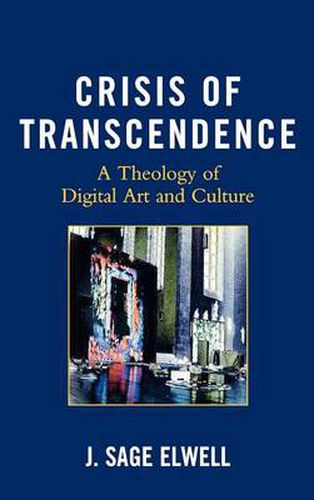Readings Newsletter
Become a Readings Member to make your shopping experience even easier.
Sign in or sign up for free!
You’re not far away from qualifying for FREE standard shipping within Australia
You’ve qualified for FREE standard shipping within Australia
The cart is loading…






This title is printed to order. This book may have been self-published. If so, we cannot guarantee the quality of the content. In the main most books will have gone through the editing process however some may not. We therefore suggest that you be aware of this before ordering this book. If in doubt check either the author or publisher’s details as we are unable to accept any returns unless they are faulty. Please contact us if you have any questions.
From the Internet to the iPhone, digital technology is no mere cultural artifact. It affects how we experience and understand our world and ourselves at the deepest levels-it is a fundamental condition of living. The digitization of modern life constitutes an essential field of religious concern because it impacts our individual and cultural sensibilities so profoundly. Despite this, it has yet to be thematized as the subject of religious or theological reflection. The Crisis of Transcendence remedies this by asking a single significant question: How is digital technology impacting the moral and spiritual depth of culture?
How can something as ineffable and nebulous as the depth of culture be known and articulated, let alone critiqued? Author J. Sage Elwell suggests that an answer lies in the arts. The arts have historically acted as a barometer of the depth of culture, reflecting the spiritual impulses and inclinations at the heart of society. He argues that if the arts matter at all, they will illuminate more than themselves. Through an experimental interpretation of digital art, Elwell offers a critical reflection on how digital technology is changing us and the world we live in at a level of religious significance. Employing a theological aesthetic of digital art, this book shows how the advent of digital technology as a revolutionary cultural medium is transforming the ways we think about God, the soul, and morality.
$9.00 standard shipping within Australia
FREE standard shipping within Australia for orders over $100.00
Express & International shipping calculated at checkout
This title is printed to order. This book may have been self-published. If so, we cannot guarantee the quality of the content. In the main most books will have gone through the editing process however some may not. We therefore suggest that you be aware of this before ordering this book. If in doubt check either the author or publisher’s details as we are unable to accept any returns unless they are faulty. Please contact us if you have any questions.
From the Internet to the iPhone, digital technology is no mere cultural artifact. It affects how we experience and understand our world and ourselves at the deepest levels-it is a fundamental condition of living. The digitization of modern life constitutes an essential field of religious concern because it impacts our individual and cultural sensibilities so profoundly. Despite this, it has yet to be thematized as the subject of religious or theological reflection. The Crisis of Transcendence remedies this by asking a single significant question: How is digital technology impacting the moral and spiritual depth of culture?
How can something as ineffable and nebulous as the depth of culture be known and articulated, let alone critiqued? Author J. Sage Elwell suggests that an answer lies in the arts. The arts have historically acted as a barometer of the depth of culture, reflecting the spiritual impulses and inclinations at the heart of society. He argues that if the arts matter at all, they will illuminate more than themselves. Through an experimental interpretation of digital art, Elwell offers a critical reflection on how digital technology is changing us and the world we live in at a level of religious significance. Employing a theological aesthetic of digital art, this book shows how the advent of digital technology as a revolutionary cultural medium is transforming the ways we think about God, the soul, and morality.